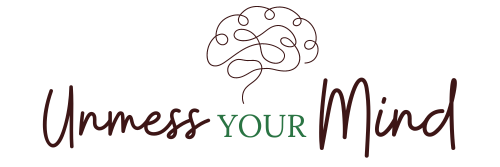It is the ability to understand what is really your “stuff” and what is not – what is the other person’s.
Discernment is a part of boundaries.
Discernment is the ability to know the answers to these two questions:
- Is this true?
- Is this about me?
If the answer to either of those questions is “no,” then it doesn’t touch your heart or your mind.
And discernment is the ability to know when the answer is “yes” vs “no.”
When you don’t absorb that which isn’t yours, you don’t get defensive. It really is that simple.
And, as your boundaries become more and more clear in your brain, you are better able to know the answer in your gut. You are better able to… discern.
For example… my parents split when I was 11.
They, obviously, had to separate all belongings.
My dad had a set of silver that was his mother’s.
It was very important to my mom that I get that silver someday.
I am their only child. It may seem obvious that the silver would come to me, but my dad was in a new relationship (which was the reason he left my mom) and my mom did not trust the new woman to prioritize me.
So, basically, my mom wanted my dad to give her his mother’s silver.
Rather than simply giving it to her, to store for me, he traded her a car for it.
I don’t know the worth of the car nor the silver.
I only know that this was the trade they agreed on.
And I know how much my mom loved that car.
She loved the car and she really wanted me to have the silver, so she made the trade.
I heard about this trade for years.
So, yes, I always knew about the trade and I always knew about the silver that I was supposed to have.
Spoiler Alert: I dont have the silver.
My mom passed away in 1999.
She passed without ever telling me what the silver looked like nor where it was stored.
I have felt guilty about that for years.
“My mom traded a car for it and I don’t even have it.”
YEARS. It has haunted me for years.
Until now.
I’ve been working on my “psychological boundaries” for years (you can buy Jules’ book here or contact me here if you’d like to do your own work on this).
Part of psychological boundaries is discernment – is this about me?
It finally hit me this morning:
“This is not mine, this is not about me. This is my mom’s stuff that I don’t have to own.”
This realization is discernment. And psychological boundaries allow your brain to stop letting in what is not about you.
If it doesn’t get in, you don’t get defensive nor down on yourself.
In that moment, I stopped beating myself for not having the silver.
Let me add: I have eight cousins. We are all equally entitled to the silver. Yes, I feel bad that none of us have it. And that’s not my fault.
Rightful assignment of responsibility means I can be upset with my mom for never telling me where it was and I no longer have to be upset with myself for it.
